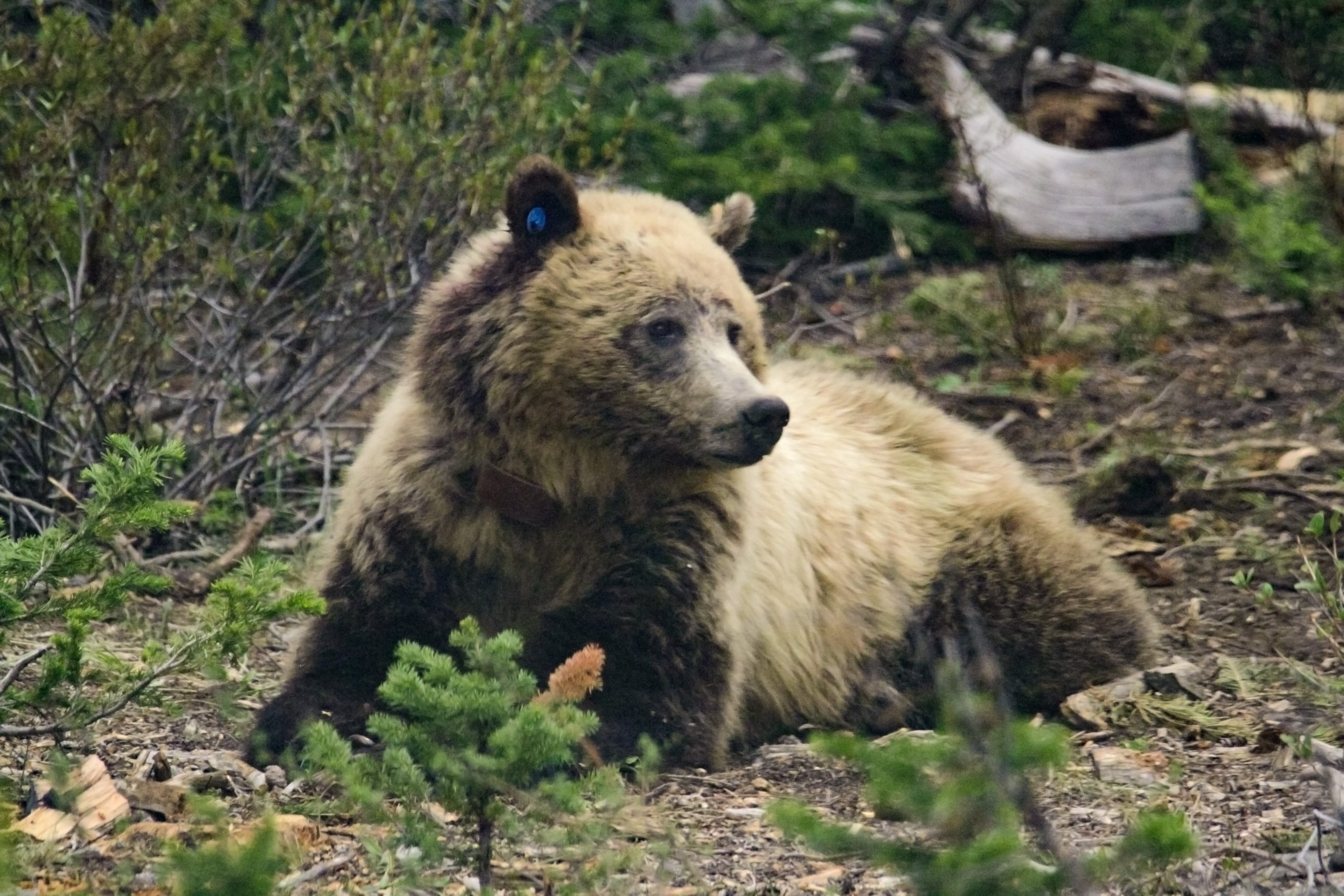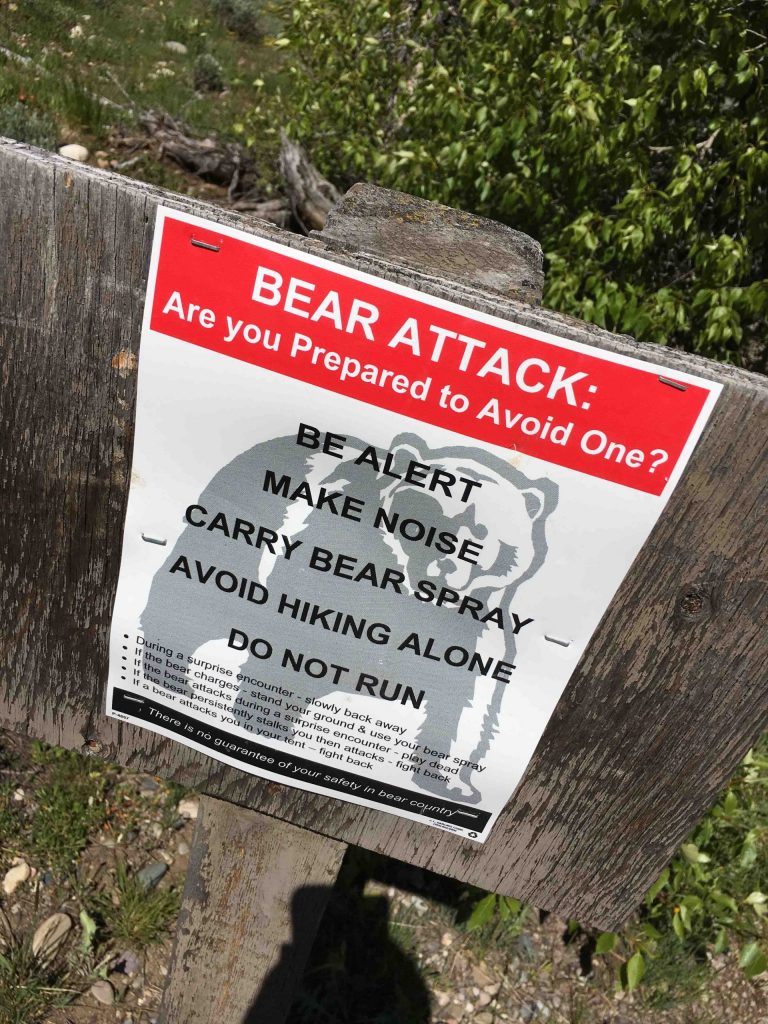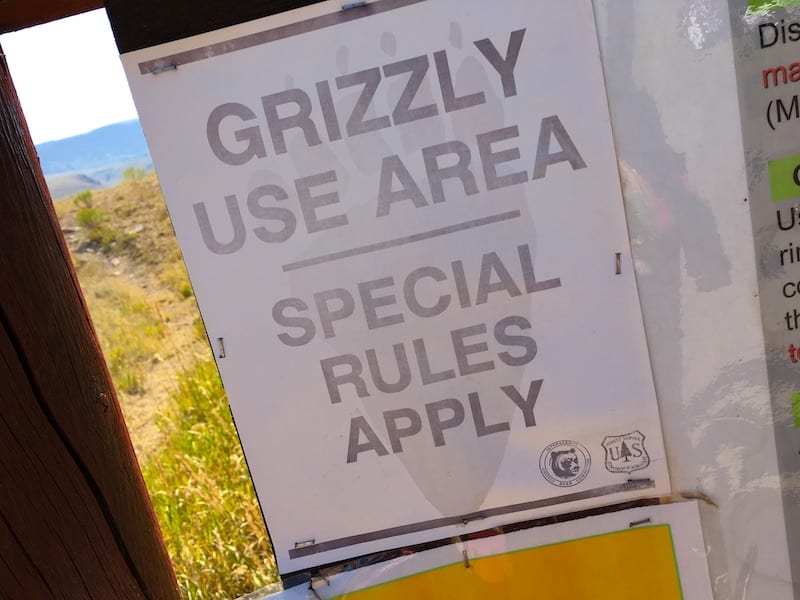
As hunting season draws closer in Western Wyoming, The Wyoming Game and Fish Department is pointing out that bears are out hunting too.
Human encounters with bears seem to have become commonplace recently and the agency wants those encounters to be safe for people and animals.
Be Mentally Prepared to Encounter Bears
Brian DeBolt, the Game and Fish Large Carnivore Conflict Coordinator, said that “Hunting is a great way to experience the vast and wild landscapes Wyoming has to offer. We want all hunters to enjoy the outdoors and be bear-wise to minimize the chances of bear-human conflicts,”
“We encourage all to have a heightened sense of awareness and be mentally prepared for an encounter with a bear.”

Take Smart Bear Precautions
DeBolt says that hunters venturing into bear country can take several proactive measures to minimize the chance of running into a bear. Hunting with a partner, staying on the lookout for bear activity, and keeping your eyes open while pursuing game are good precautions. Learning to recognize bear signs such as scat, tracks, and diggings are useful skills. Quickly retrieving harvested game animals is essential, as lingering game increases the chance of bears getting on the scent.
Tips For Avoiding Bear Encounters While Hunting
- Always try to hunt and call game with a partner and stay within sight of each other.
- Remain alert and watchful for bear activity. Avoid tunnel vision while pursuing game.
- Learn to recognize bear sign such as scat, tracks and diggings.
- Retrieve game animals as quickly as possible and watch for approaching bears when field dressing and quartering. The longer game is in the field, at camp or in the back of a vehicle the more likely it is to be discovered by a bear.
- Quarter and hang the carcass in a tree at least 10 to 15 feet from the ground and four feet from the tree trunk. Separate the carcass from the entrails and place the carcass in an area that can be safely viewed from a distance if game must be left on the ground overnight.
- Make noise when retrieving game. Use binoculars to search the area for bears and to determine if the game has been disturbed by bears prior to walking up to the carcass.
- Be aware that bears often set up a daybed near food sources.
- If a bear has claimed your carcass, leave the scene, and report the incident to Game and Fish. Do not attempt to scare the bear away.
- Bears actively defend their food, their young and their personal space. During the fall all bears are on the lookout for food before going into hibernation for the winter.
DeBolt says that hunters should quarter and hang carcasses in trees at a safe distance from the ground and trunk. Make plenty of noise while retrieving game, he noted, and use binoculars to look for bears in the vicinity. If a bear has claimed your animal, leave the area, and report it to Game and Fish.

Keep a Clean Hunting Camp
Additionally, Game Wardens say, maintaining a clean camp environment is important. Securing garbage, food items, and attractants in vehicles or hard-sided campers before sleeping or leaving your camp minimizes potential bear encounters.
When in bear country, carrying EPA-approved bear spray and knowing how to use it can offer a powerful defense against the animals.
Be Bear Ready
- Carry a bear deterrent and know how to use it. Many aggressive bears have been deterred through the use of bear spray. People should always carry bear spray where it is easily accessible while in bear country.
- Make sure bear spray is EPA approved. Those that are not may prove faulty.
- Know where seasonal food sources — like berries — for bears are present and either avoid those areas or be cautious when entering them.
- If you see ravens or other scavengers in the area that is a good indication a food source is nearby and a bear may be in the area. Avoid those areas if possible.
- Changes Come to Jackson Hole’s Elk Refuge Hunt - October 8, 2023
- Victor Stabbing Leads to Attempted Murder Charge - October 3, 2023
- Grizzly Shot in Self Defense Near Yellowstone - September 29, 2023

